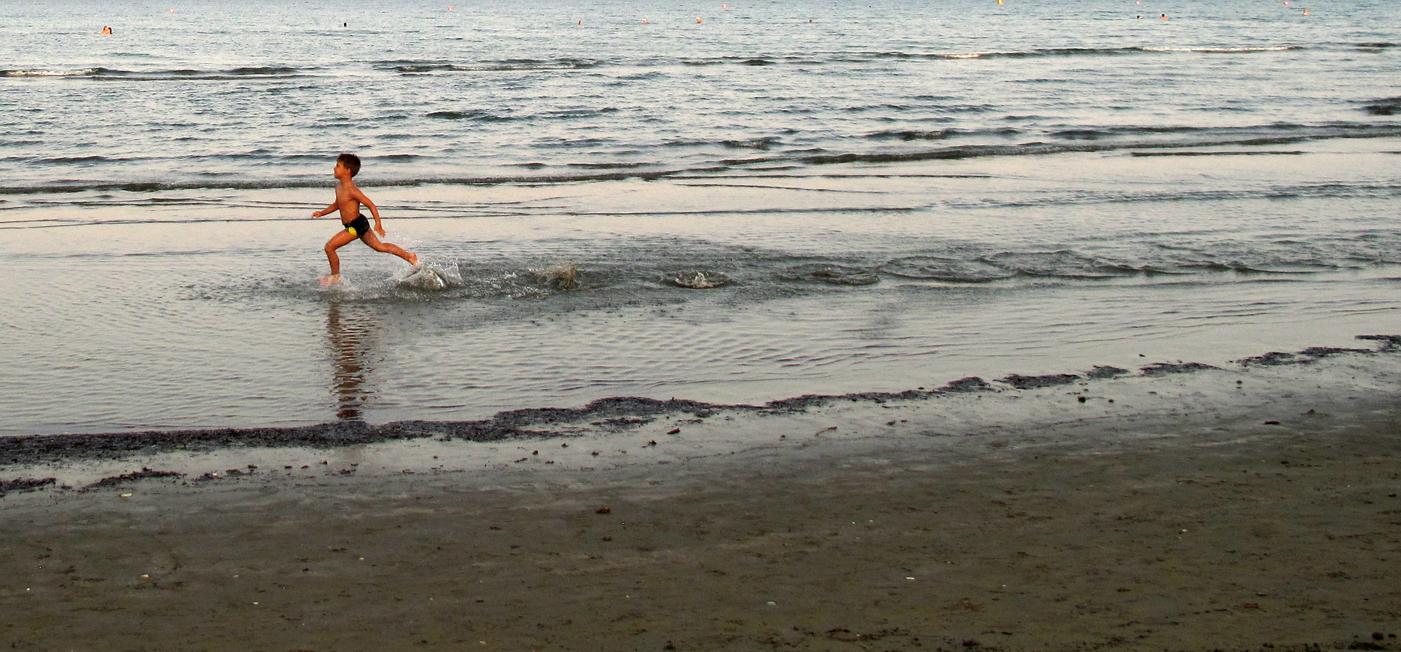Cyprus bailout plan hits Russian economic model
A Cypriot boy runs on a beach in Larnaca.
Russia’s latest foreign policy offensive may be far less harmful to human life than its support for Syrian President Bashar al-Assad, which has enabled Moscow to posture on the world stage. But Kremlin critics say it reveals as much about the motivations of a government run by and in the almost exclusive interests of a small group of President Vladimir Putin’s cronies.
Putin has lashed out against an EU-led proposal to impose a onetime $7.5 billion tax on all bank accounts in Cyprus — a condition for a $13 billion bailout loan — by calling it dangerous. Moscow, which complained it wasn’t consulted about the EU decision, said it could affect a previous Russian $3 billion loan to Cyprus.
Under the deal struck on Sunday, holders of bank deposits under $130,000 would pay 6.75 percent and accounts above that amount would be taxed 9.9 percent. Moscow is concerned because officials there say Russians could lose up to $2 billion. Depositors in Russia’s second-largest bank, the state-controlled VTB, alone stand to lose $240 million.
Russia is presenting its argument as matter of principle. Prime Minister Dmitri Medvedev compared the tax to the Soviet confiscation of property. Finance Minister Anton Siluanov said it’s wrong to make investors pay for the banks’ problems. “I don’t pity our businessmen,” he assured reporters.
Few would argue that most of the Russian money in Cyprus was deposited there as investment, however. It’s no secret Cyprus, where taxes are low and regulation light, is a popular offshore banking center that’s central to money laundering. That’s important for a country where no less authoritative a figure than the central bank chief, Sergei Ignatiev, said last month that $50 billion, or some 2.5 percent of Russia’s economic output, leaves Russia each year as so-called capital flight.
Among the Russian funds reported to have been deposited in Cyprus was at least $31 million of the so-called Magnitsky money, $230 million in total that police and tax officials colluded to embezzle from the government. The fraud was uncovered by lawyer Sergei Magnitsky, whose whistleblowing prompted his arrest by the same officers he’d identified. Refusing to recant his accusations, he was beaten and denied medical care before being left to die on a cell floor. Cyprus has opened an investigation into the money trail.
According to the German foreign intelligence agency, Cypriot banks hold $26 billion of Russian money, most of it deposited there illegally to evade Russian taxes.
Although the Cypriot government denies the accusation, it’s had a hard time explaining why the tiny state (900,000 inhabitants) is the largest foreign direct investor in Russia.
Despite the Kremlin’s current anticorruption drive, capital flight (and the return of funds to Russia) remains central to the functioning of a corrupt political and economic system in which Putin has appointed loyal members of his circle to run the country’s state energy companies and other industries.
The sudden wealth of some of his associates has lifted them onto Forbes Magazine's list of global billionaires. Among them, the fortune of oil trader Gennady Timchenko shot up $14 billion from just $400 million a mere four years ago.
Cyprus symbolizes the functioning of a country in which state officials have become the main mafia bosses.
Little wonder the German-led group of creditors who negotiated the Cyprus bailout demanded the tax on bank deposits because they don’t want to foot the bill for bailing out money launderers.
More from GlobalPost: Who hacks the most? Hint: Not China
The deal is still being negotiated and its terms may change if Cyprus accepts it. But naturally the launderers are upset.
Russia has a long and sordid history of exporting corruption through its foreign business dealings. Regardless of the merits of the Cyprus tax plan — which will probably be dropped in the face of fierce opposition in Cyprus and across Europe — Moscow’s arguments against it are no matter of principle, but the latest instance of its seeking to influence EU affairs for its own profit.
Every day, reporters and producers at The World are hard at work bringing you human-centered news from across the globe. But we can’t do it without you. We need your support to ensure we can continue this work for another year.
Make a gift today, and you’ll help us unlock a matching gift of $67,000!
